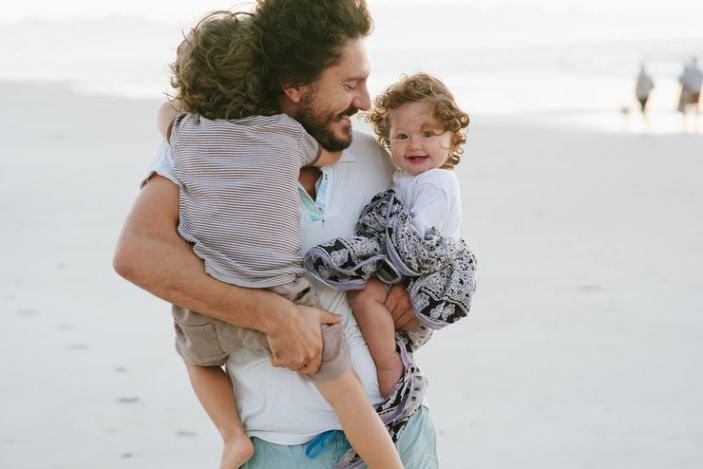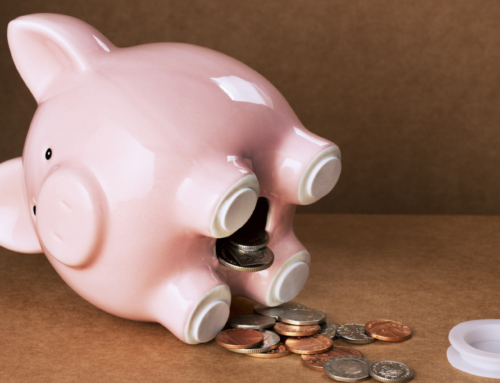Spending money on stuff to keep up with our friends is so pre-recession. These days, most of us know that emergency funds are the new extravagance.
And yet, when it comes to our kids, most of us are still overspending big time, hemorrhaging money by mistaking luxuries for necessities and doling out more dollars than we save. Why? Because we’re afraid that cheaping out on our kids means they’ll fall behind in school. And in a high-pressure parenting climate, there’s no room for error: Academic admissions are competitive, and, down the road, jobs are scarce. We’re terrified our kids won’t get into college and will later wind up living in our homes.
Like any severe panic, this anxiety disrupts logic and we experience a fight-or-flight reaction. Flight, we’ve learned, is impossible (who would check the homework?) and so we’re left to fight. Ammunition is expensive and includes high-performance sneakers, toddler learning programs, private music lessons, educational toys, language programs. And we’re all throwing away our money.
Trust me, I know. I’m a former U.S. government economist who now writes about personal money management. And yet there are plenty of stupid things I bought for my daughters, now 14 and 12, simply because I thoughtnot buying them would mean my kids wouldn’t be as smart, as athletic, or as healthy as they could be. In particular: that heavy, smooth-ride stroller (which I never used), for $600; a bunch of educational toys, some of which were later recalled, for $500; and the homeopathic medicine that didn’t work (and in turn caused my daughter’s untreated eczema to contract an infection that required hospitalization), for $1,200. I, for one, want my money back.
Here are four other things I learned about money and kids while writing my book, Not Buying It: Stop Overspending and Start Raising Happier, Healthier, More Successful Kids:
1. Buying the most expensive crib, car seat, or stroller isn’t going to keep kids safer.
All of these items must adhere to the same federal standards—meaning we can buy the $800 crib from baby-store-to-the-stars Bellini or the $150 crib from Amazon.com, and both will have undergone the same federal inspection process.
What’s more likely to improve the life of our children? A college education. Best to start saving instead.
2. Money can’t buy your kid willpower.
Our kids’ goals are accomplished only when they apply hard work and self-control—nothing else. We can buy the $200 lacrosse stick and we can hire a private coach, but that kid is only going to improve when she has the willpower to focus and practice. Willpower is like a muscle; it’s something you can build up over time. For free. At home. During breakfast.
John Tierney, who co-wrote the book Willpower: Rediscovering the Greatest Human Strength, says that we can build willpower over time by practicing simple exercises. The trick is to have our kids concentrate when they’d otherwise be operating on autopilot. For example, they can brush their teeth with their weaker hands or practice sitting up straight. They can stop using contractions or—my personal favorite—eliminate the word “like” from their sentences. Building up your willpower in one area of your life will spill over to other segments.
3. Buying all organic produce is nice—but probably not necessary.
For starters, even the Environmental Working Group—a watchdog for human and eco safety—says the health benefits of a diet rich in fruits and vegetables outweigh the risks of pesticide exposure. The EWG also suggests buying organic when it counts the most: Each year, it reports on the varieties that wear the most and least pesticide residue. These lists are called the “Dirty Dozen” and the “Clean Fifteen,” and for those of us who want to buy organic fruits and vegetables when it’s necessary—and save when it’s not—these findings can help govern our actions in the aisle.
For example, there’s plenty of nonorganically grown produce that’s practically pesticide-free. During the last round of testing, some 89 percent of pineapples, 81 percent of papayas, 78 percent of mangos, 73 percent of kiwi, and 62 percent of cantaloupe had no residues. Only 1 percent of avocados showed any trace at all.
4. Good parenting beats expensive schools.
There’s nothing wrong with fancy schools, of course. But they tend to admit the people who would succeed anyway, before anyone’s parent writes a single tuition check. Basically, economists have discovered that the skills needed to gain acceptance into a top-performing middle school, high school, or university are the same skills that propel a person to thrive in a job or business. The school the person attended? Whatevs.
More importantly, when it comes to little kids, good parenting outperforms all else. For example, achievement is highest in kids whose parents are involved in their schoolwork. (If you’ve ever gotten involved in a science project only to be interrupted by your child asking if she could please help you, you know it’s possible to overdo things in this department!) In kindergarten and first grade, it means scheduling some time each day to do homework and clearing a quiet spot in the house to tackle assignments. By middle and high school, this should be habit, and our involvement turns into interest, making studies the subject of dinnertime conversation.
Read the full article at: www.mindbodygreen.com
Don’t go broke #spending on your #kids. Good #parenting is more crucial to their future well-being. #familyfinance #familybankgame






